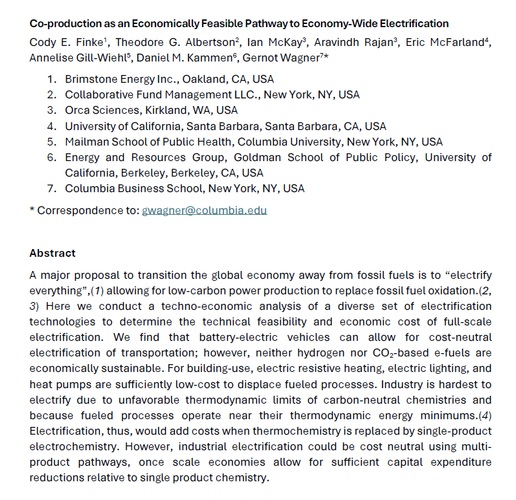Oil and hamburgers
Hamburgers and fossil fuels are both dense sources of energy, and society has made them convenient. That doesn’t mean they’re good for us.

Hamburgers are sometimes described as “the perfect food” and sometimes as the source of all evil.
They are delicious — well, a good one is. I haven’t had one, or any meat, in well over a decade. (See: “evil, source of all.”) But I very much remember the taste. They also pack quite the caloric punch, although that doesn’t exactly make them nutritious.
You might be asking, dear reader, why I’m delving into the virtues and vices of hamburgers when there are bigger things happening in the world. In short, it’s because you can think of that hamburger as an analogy for oil in one too many ways.
Convenient calories are one. Why do liquid fuels still dominate transport, despite their many vices? Because they are a dense, convenient source of energy. Yes, there are untold health and environmental impacts. The average barrel of oil burned, much like the average ton of coal, causes more in external damages than it adds in value to the economy. But right there, in the moment, the system we set up over decades just makes it more convenient to go for the hamburger, or to burn oil to propel ourselves forward.
Yet it is more than fair to describe many uses of oil as vices, for which a combination of personal, technological, and policy shifts is needed to bring about rapid change. The correct choice, if not the easiest one, is to get off oil, fast.
Consider the SUV, a vehicle category that has become so dominant it constitutes over 45% of car sales globally, up from less than 20% a decade ago. Laura Cozzi and Apostolos Petropoulos, two analysts at the International Energy Agency, added up emissions from all SUVs and concluded, “If SUVs were an individual country, they would rank sixth in the world for absolute emissions in 2021, emitting over 900 million tonnes of CO₂.”
The same IEA analysis shows that 98% of SUVs on the road have internal combustion engines. SUVs themselves have become a reflection of the oil-fueled economy. Converted into barrels of oil, they are responsible for well over 3 million barrels a day of growth in oil demand from passenger cars since the last time oil prices spiked in 2008. Pinning this on drivers of SUVs is not entirely fair, as it doesn’t account for the fact that many might have opted for a normal-sized car — but that’s the point. They did opt for the SUV.
Personal choice is a key part of the equation, but not the only one. Choosing the SUV or the hamburger, even though better, healthier alternatives are available, often comes down to norms and parameters set by society. Policy matters, a lot. For example, SUVs have been exempted from fuel-economy standards that have driven rapid efficiency improvements in what used to be called “cars.”
My New York University colleague Jennifer Jacquet has detailed how the meat industry is “doing exactly” what the fossil industry has done: fight tooth and nail for vested interests and everyone earning money off the status quo to delay the inevitable. While avoiding that hamburger makes for a healthier life, and perhaps even a happier and longer one, actually doing it requires more than simply knowing that information. Similarly, it takes more than knowing electric vehicles are fundamentally better products to get oil out of transportation.
But the flipside holds true, too: Change is possible, and everyone from consumers to businesses to policymakers has an important role to play. It takes the advance team to adopt a new technology at a higher price and to do so against the grain — preaching veganism at Thanksgiving dinner, as it were — before the default flip suddenly switches.
It’s hard to point to the adage that any crisis equals opportunity. We are still very much in the crisis part in more ways than one. In the U.S., there are plenty of misguided calls now for gas-tax holidays, and some policymakers are heeding them. It would be much better to give cash directly to the poor who need the help the most, while keeping in place the incentives to get off oil. The best cure for a high oil price, after all, is a high oil price.
Still, another episode of high prices provides a chance to get it right — at least more right this time than the last. Getting off oil is indeed easier than ever before, with alternative technologies cheaper and better. Not everyone can afford an EV immediately, but the switch does shield drivers from oil price spikes. So would a more fundamental rethink of the role that cars play in society. Getting transportation right takes much more than one technofix, just as switching from hamburgers to vegan burgers is good but hardly the full solution.
Fortunately, we also have a deeper understanding of the overlapping nature of the national security, energy, and climate crises. The moral clarity afforded by Russian President Vladimir Putin’s unprovoked invasion of Ukraine is yet another push.
Here’s hoping we emerge from this moment searching for better alternatives to SUVs and hamburgers, with many more of the right policies helping guide things in the right direction.
Gernot Wagner writes the Risky Climate column for Bloomberg Green. He teaches at Columbia Business School (on leave from New York University). His latest book is Geoengineering: the Gamble (Polity, 2021). Follow him on Twitter: @GernotWagner. This column was first published by Bloomberg Green on March 18th, 2022, under the title "Why Kicking Our Unhealthy Oil and Hamburger Habits Is So Hard," and does not necessarily reflect the opinion of Bloomberg LP and its owners.


